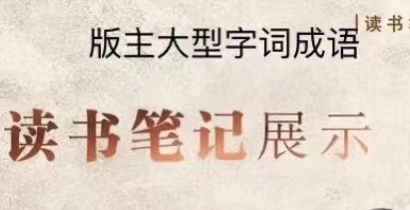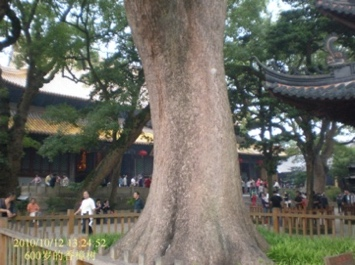Section Twenty-six “Supported by Friends and Acquaintances, Succeeding in Transferring into City; Family and Career Enter a New Stage” gave an account of how we owed ¥6000 for the first time in order to get an apartment to live in, which formed a rather heave pressure on us. Our descendants are sure to have such a feeling that it’s nothing to have a house on credit. When the mortgage has become very popular, note money is depreciating continuously and the price of the building property goes up and up, a lot of people buy their houses on credit and believe they will not lose anything. At the beginning of the 1990’s mortgage was not heard of at all and we had to lend money from our relatives or friends. The amount of our monthly salary was 200 yuan plus and our expenditure had reached the peak. The first son Li Song was enrolled into Southeast University and had to pay 200 yuan for the tuition fee every year. His living expense was about 20 to 25 yuan a month; my parents got 10-15 yuan support monthly from us. The second son, Liangliang Song entered the First Middle School of Xuzhou, which was lucky to us because he could live with us and decrease our expenditure. Three of us together would spend 40 to 50 yuan a month. Therefore we could reserve 100 yuan plus every month and the whole year about 1500 yuan could be left. Paying off 6000 yuan debt would take four years.
We began the days to increase the income and decrease the expenditure. My traditional method of increasing income is to contribute. It was very good for the teachers in colleges and universities to have no fixed office hours and I could come home when I finished lecturing, typing on my typewriter to write articles or exercises, the subject of which stayed to be the middle school English teaching, which I was familiar with. Making money by writing was pitiful because you must wait for a very long time for the contribution fee to come, let alone some of the articles which would have no news as if an earth ox went to the sea. I wrote every day and sent manuscripts every week, with the remuneration coming every month, helping out with the family expenses.
The other method of increasing the income is lecturing, which was a new approach after we entered the city. In order to help nephew Haitao Zhang (Zhang Meilan’s brother’s first son) to be employed we got to know the director in charge of students of the technical business school Haitao Zhang visited. The director Zhai was also an English teacher, who spent his spare time coaching accountants in the study of accountant English to help them get ready for the accountant title English examination. Accountant English was somewhat professional and as time went on, the text became more and more difficult. Zhai was willing to recommend me to the accountant section of the city bureau of finance and let me teach the accountants to study English, with 5 yuan per an hour. I coached them two times every week and each time lasted two hours, so I could earn 20 yuan every week, with one month 80 yuan. Meilan Zhang was afraid of my tiredness and often lectured instead of me. In addition to my contribution fee, my income had doubled, which sped up our paying off the debts. In half a year we paid off 3000 yuan debt from the union of the ZMS and then in the first half of the year 1992, my brother-in-law, Meilan Zhang’s brother got his loan back.
After we began to work in the city we lived in a small house Meilan Zhang borrowed from her classmate during the middle school called Yunpei Feng, located in Tuchengmen Lane across Kaiming Market. This was a multi-family court, where 9 families lived together, each having narrow room without exception. I felt relieved all of a sudden when Meilan told me that Yunpei Feng promised to lend the house to us, because we had been worrying about our dwelling place since we began to apply for transferring. The old classmate helped us, which we would never forget. The house has two small rooms. In the inner room there were a double bed and a square table and in the outer room a single bed and a small cupboard. The earth on the wall was always falling and we pasted newspaper on it in order that we dare lean against it. There was a gangway into the multy-family court, where we cooked using a stove burning honeycomb briquette. It was lucky that the house didn’t leak and we could sleep the whole night even it was raining hardly, much better than the straw house in my native place during my childhood, which was sure to leak when it was storming. All kinds of basins, big or small, were mobilized to hold the leaking water. The straw house had no brick walls and they were made of reeds. The toft was low and the rainwater with earth came in when it was raining heavily. Father had to dig some holes and bail the coming dirty water, just like the poem sentences written by the poem saint Du Fu of the Tang Dynasty: “The house is leaking and the bed was wet all over; the feet in the rain were numb without stop.” We also often remind ourselves of the days when we labored in Wulou, receiving the re-education in the countryside, living in a gridding mill, and a summer storm threw the roof away. Thinking of the past, I didn’t feel very sad, although the small living house was quite simple and crude. Meilan had a worse childhood than me because she lost her father very early. It was impossible for her to be angry at the small house. She has a good relationship with the neighbors and we lived fairly happily.
Among 9 families, Fan’s house had the same area as ours. On the weekend, one son, three daughters, with each family three people, plus old parents altogether 14, had dinner together. It was hard for me to imagine how they could sit around. There were two other families, Sha’s and Wu’s, whose houses were narrower than ours and were often visited by relatives. All the families in the court were equal with each other. In the evening the three of us sat at the square table, preparing or reviewing lessons, with a daylight lamp over us. It was ideal that the First Middle School was not far from our living house, so Liangliang could come home by bike within 10 minutes and have lunch with us.
We were hard up for money due to loan repayment and had to cut down our expenditure. We often went to the ancient Huanghe River for a walk and saw a line of people buying a kind of prepared food, named “Oil Hot Duck by Zong Family”, which smelled delicious. We were not affordable to stand in the line and didn’t taste the duck until we paid off all the debt. Li Song could not get a lot of money from us and was estimated to be ranked in the middle of the roommates. In order that he could travel to Beijing in the summer vacation in 1992, we sent him some money. Unexpectedly, his travel energy was mobilized and first went to Xi’an, then Beijing and in the end to Yinchuan, the capital of Ninxia Hui Autonomous region. We didn’t know that he saved money every month so that he could travel so long until he came home. He bought some fruit and did not buy anything to eat during the whole travel, which hurt us deeply.
At the end of 1991, the self-built building aided by the public was completed and we moved in without any decoration. It was inconvenient to live in the sixth floor because the water could not rise so high and we had to go downstairs to the ground to fetch water. This apartment was located in the west part, so it was convenient for Meilan to go to her institute by bike and it was not very far from the No.1 Middle School either. Pengda was located in the southeast and I had to go there on the school bus. After my classes I had to wait until the late afternoon when the school bus sent the teachers to the city. In the school I could not write anything and it was inconvenient for me to prepare my lessons because all the books were at home. Tuchengmen Lane was not far from the three places, all of us could go to our destinations by bike. As soon as I ended my lesson I could come home, which I enjoyed very much. Therefore, we still lived in Tuchengmen Lane, with holidays excepted.
Pengda was also constructing a living building for the teachers and I must hand in some money, about 2000 yuan, enforcing us to save continuously. What we were worried about most was the housing. Now the problem would be solved completely, so even though we could not live generously, we were very happy. It was unlucky that Pengda was located in the utmost southeast of the city, accordingly we still could not live in the comparatively spacious apartment because it was inconvenient for Meilan and Liangliang. Only on weekends could we go there, enjoying the commodious room.
Our monthly salary was increasing almost every year. In August of 1993 when Liangliang went to Qinhuangdao, reading undergraduate courses, there was a questionnaire, showing our economic conditions: Defu Song’s monthly salary 350 yuan; Meilan Zhang’s 300 yuan. From August of 1993 to the August of 1994, two sons were both reading undergraduate courses and Zhang’s monthly salary 300 yuan was divided in half and sent to the south and north, each son getting 150 yuan. In August of 1994, Li Song graduated and came back to Xuzhou, starting to work in the city bureau of public security. As a result, the economic condition of our family was changing better and better.

Illustration of the map:
EI: The Economic Institute (Zhang’s unit) No. 1 MS: No. 1 Middle School of Xuzhou
RS: Railway Station FN: Fengnan Housing Estate
TCM: Tuchengmen Lane
It was not all good when we lived in the city. In the countryside, although our working time seemed very long, from early morning into the deep night, during the daytime, it was very flexible and we could go to the farm product market to buy vegetables and other foods. In addition, both of us worked in the same school and the living quarters for the teachers were close to our office and classroom buildings. Therefore, we didn’t need to catch buses or went to work by bike in a hurry. We had three meals at home, inexpensive but clean and nutritious. We were feeling quite inconvenient when we began to work and live in the city. It was luck that both of us taught in the colleges and we had no office hours, which meant that we could come home after the lecture was ended. You could see in the map above. Pengda was located in the utmost southeast and the Economic Institute in the utmost northwest. Liangliang Song went to Qinhuangdao to read the undergraduate courses and we had no load of taking care of him, so we moved to Pengda. It was troublesome for Zhang to go to the EI to give lessons. If she had classes in the first and second hour in the morning, we went to Fang’nan in the school bus in the late afternoon and stayed there overnight. The next morning, she went to EI by bike and I went to Pengda again in the school bus. If she had lessons in the third and fourth hour she went to Zhaishan on foot (almost half an hour) and took No. 11 Bus to the downtown area. Her bike was left in the Zhongshan Restaurant, where Yu Cheng worked and rode her bike to EI. (Yu Chen used to be our neighbor in the ZMS) When she ended her classes she decided where her bike to leave according to the time she went to EI the next day, either carrying to the sixth floor in Fangnan or leaving it inside the court of Zhongshan Restaurant. Such inconvenient days lasted for two years and we didn’t feel painful. Xuzhou used to be a middle-sized city. In a large city, it is common for office staffs to commute very long way. We had no office hours and were calm, getting ready to live and work in such a way until we retired.
March 22, 2010, in Xuzhou
Proofreading on Feb. 23, 2012, in Chicago
Uploading on Aug. 6 2023 in Xuzhou









